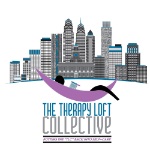Therapists in Allentown, PA and Nearby Locations
Find a therapist in Allentown, Pennsylvania that meets your needs. Browse our comprehensive list of affordable and licensed therapists in Allentown to find a professional specializing in counseling people with stress, anxiety, depression, relationship issues, grief, and more.
We may receive fees from the providers listed below. See our full disclaimer.
FAQs on Getting Started with an Allentown, PA Therapist
How do I find a therapist in Allentown, Pennsylvania?
Enter your city or zip code in the search bar above. You can then filter the results by areas of expertise, therapeutic approach, gender, languages spoken, and other factors to find the best fit for you. Despite living elsewhere, some therapists may serve Allentown clients via in-person or teletherapy sessions.
Are all the Allentown, PA therapists listed here licensed mental health professionals?
Our directory includes providers with an educational background in therapy, such as psychologists, psychiatrists, social workers, and counselors. When new providers sign up, we check that they are licensed Pennsylvania therapists before approving them.
What personal characteristics should I look for in a therapist?
Finding a therapist who shares your values or personal experiences may help you open up more quickly and have better chemistry with them. You may prefer to work with a therapist in Allentown, Pennsylvania who speaks a second language that you speak, shares your religious beliefs, or is of a certain gender, race, or ethnicity.
How much does therapy cost?
Therapy costs vary by location, therapist experience, and training. In the US a session typically starts at around $80 and goes up to $300. Insurance coverage can lower this considerably if the therapist is in-network.
Is online therapy right for me?
Online therapy can be just as effective as in-person therapy, depending on the condition you are trying to treat. Serious, life-threatening mental illnesses, that require the provider to observe the patient’s behavior visually are more suitable for treatment via in-person sessions. In most cases, the option for virtual sessions, at least occasionally, makes the therapeutic experience more convenient, making consistent participation more likely. Virtual sessions with your therapist are different from having a subscription to an online therapy service which typically includes access to a proprietary platform for communicating with your therapist and comes with additional mental health tools.
Are therapy sessions confidential?
US therapists must comply with HIPAA laws to protect sensitive health information. Therapists will only discuss a client with others if the client gives written permission, except in cases where the client is in danger of harming themselves or others, there is suspected abuse of a child, elderly or dependent adult, or if legally required by court order.
How often will I meet my therapist?
Most therapists recommend weekly sessions with their patients. Many therapists assign “homework” between sessions, such as thought exercises and mindfulness practices. Under certain circumstances, a provider may suggest more frequent meetings.
What type of therapy is right for me?
The right type of therapy depends on several factors, including why you’re seeking treatment, your timeline, and your personal preferences. Some therapies are time-limited, others are open-ended. Some providers specialize in specific therapeutic approaches, known as modalities. While it’s a good idea to let your mental health professional choose the modality they believe is most appropriate for you, should you have a preference, you can use our filters to show therapists in Allentown, PA specializing in that modality.























